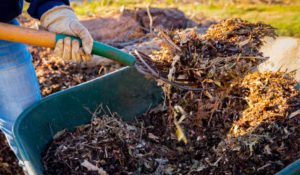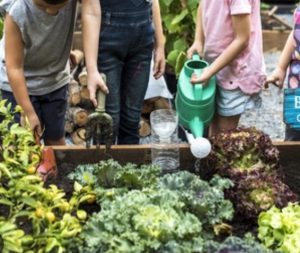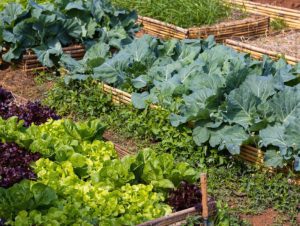In the lush and diverse landscapes of British Columbia, a growing number of individuals and communities are recognizing the environmental benefits of downsizing their backyard gardens. Moreover, beyond the obvious space-saving advantages, a smaller garden space can contribute significantly to sustainability, reducing resource consumption, minimizing waste, and lessening ecological impact. In this blog post, we will delve into the benefits of downsizing a backyard garden, explicitly focusing on environmentally conscious practices in British Columbia. We’ll provide practical tips and, most importantly, showcase real examples of how individuals and communities in the region successfully implement downsizing for the environment’s sake.
1. Optimizing Resource Efficiency:
One of the primary advantages of downsizing a backyard garden is optimizing resource efficiency. In British Columbia, where water conservation is crucial, smaller gardens require less irrigation. By choosing native and drought-tolerant plants, gardeners can further minimize water usage. Additionally, smaller garden spaces are more manageable. Consequently, this allows for efficient fertilization and pest control. This, in turn, conserves resources and reduces the environmental impact of gardening practices.

2. Reduced Waste and Composting:
Downsizing a backyard garden often results in less plant material to manage, leading to reduced waste. Notably, in British Columbia, where waste management is a growing concern, smaller gardens minimize the burden on landfills. Moreover, gardeners in the region increasingly embrace composting to recycle organic waste. They turn kitchen scraps and garden clippings into nutrient-rich compost. This sustainable practice benefits individual gardens and contributes to a more significant movement towards waste reduction in the province.

3. Maximizing Biodiversity:
Smaller gardens allow for more intentional and strategic planting, promoting Biodiversity. Importantly, in British Columbia, native plant species are crucial in supporting local ecosystems. By focusing on diverse native plants, gardeners can create habitats that attract and sustain local wildlife, including pollinators and birds. Consequently, this approach contributes to preserving British Columbia’s unique Biodiversity and helps counteract the decline of native species.

4. Community Gardens as Environmental Hubs:
Community gardens have emerged as hubs for environmental consciousness and sustainable practices in British Columbia. Notably, many communities have successfully downsized their collective gardening spaces, emphasizing the importance of shared resources and collaborative efforts. These community gardens exemplify how downsizing on a larger scale can lead to increased efficiency, reduced waste, and a stronger sense of environmental responsibility among residents.
5. Urban Farming and Vertical Gardening:
Urban farming and vertical gardening are gaining traction in densely populated urban areas of British Columbia, where space is at a premium. Importantly, individuals creatively utilize small spaces, such as balconies and rooftops, to cultivate edible plants. Consequently, this provides fresh produce for urban dwellers and reduces the need for long-distance transportation of food. Growing food locally contributes to a smaller carbon footprint and a more sustainable regional food system.

6. Case Studies: British Columbia’s Eco-Friendly Gardeners:
Highlighting specific instances of individuals or communities successfully implementing downsizing for environmental reasons can inspire others to follow suit. For instance, examples could include community gardens in Vancouver adopting sustainable practices, residents of Victoria embracing xeriscaping to conserve water, or a neighbourhood in Kelowna focusing on native plant species to support local ecosystems.
Downsizing a backyard garden in British Columbia is not just about saving space; it’s a conscious choice that can positively impact the environment. By optimizing resource efficiency, reducing waste, promoting Biodiversity, and fostering community engagement, individuals and communities in the region are contributing to a more sustainable and ecologically conscious future. Whether through community gardens, urban farming, or innovative gardening practices, British Columbians demonstrate that downsizing can be a powerful tool in pursuing environmental stewardship. As the province continues to prioritize sustainability, the downsizing of backyard gardens stands out as a practical and impactful way for residents to play their part in preserving the natural beauty of British Columbia for generations to come.